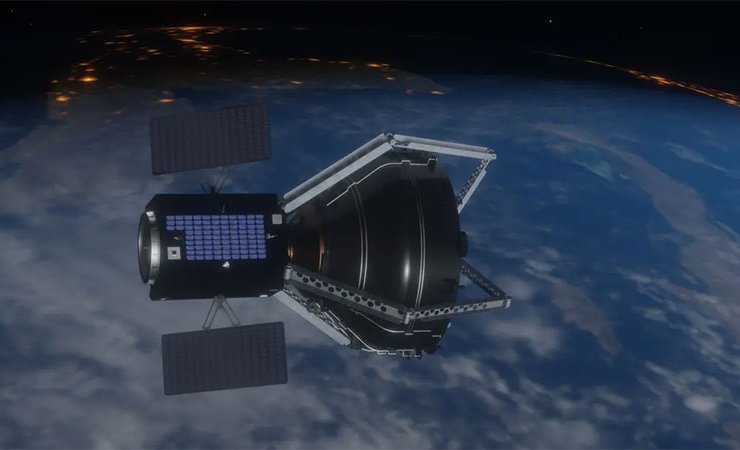The UK will help Switzerland build the world's first "space flusher" that will remove a chunk of space debris by dragging it into Earth's atmosphere to burn in dense layers on a £ 100 million mission.
British company Elecnor DEIMOS will work with Clearspace to develop an attitude control and orbit control system that will orient the spacecraft while collecting debris.
A £ 100 million space flusher called Talon will be launched in 2025. It was named so because the device will use the movement of the claw to collect debris before sending it into the Earth's atmosphere.
Claw is building Swiss startup Clearspace with support from the European Space Agency (ESA) and eight countries, including the UK.
Aerospace and defense company Elecnor Deimos will develop the Clearspace-1 Attitude and Orbit Control System (AOCS), which will orient and position the satellite to help capture space debris using generators, engines and antennas.
<! --dle_media_begin: https://youtu.be/NkRdR0MHplU-->
For fourteen billion years, between the Big Bang and the fall of 1957, space was untouched, but since then humans have put more than 10,000 artificial objects into orbit.
Most of them either do not function or have been destroyed, and there are now about 160 million objects in orbit, most of which are "space debris" ranging in size from a few inches to tens of feet across.
The Clearspace mission is a pilot test to develop more sustainable, long-term solutions to space debris, Jacob Gere, head of the UK Space Agency's Space Observer and Tracking Team, told MailOnline.
He said the tracking was a vital part of the process, and part of the Vega rocket, that recently deorbited would be a“ good target ”since you know exactly where it is and its size.
“Future missions will have more tracking issues and difficulties as we won't know exactly how big, how fast, or where the junk we want to capture is located,” he told MailOnline.
A spokesman for the UK Space Agency said the UK is already a world leader in small satellite technology, telecommunications, robotics and Earth observation.
With the growing demand for services, this could enable the UK space industry to become a global leader in space sustainability.
Earlier this year, the UK Space Agency announced a number of new investments funded by the Space Observation and Tracking (SST) program.
They are designed to enhance the UK's ability to track this debris and manage the risks of potentially dangerous collisions with satellites or even the International Space Station with a crew.




